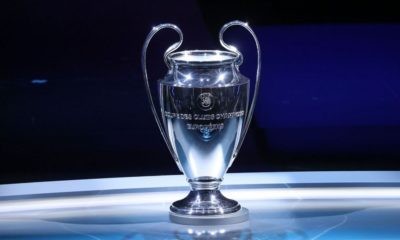Features
Brexit: What’s the consequence on sports?
Brexit will impact the sporting landscape from the possible split in football to the impact on Formula 1 constructors, here are the main consequences

The result of the elections and Boris Johnson’s victory paves the way for the exit of UK from the European Union. The majority achieved by the conservative leader on December 12th seems to confirm the intention of many voters to continue with Brexit. And on January 31st, the last extension granted by the EU comes to an end. The process, surrounded by considerable uncertainty, will also impact the sporting landscape. From the possible split in football to the tremendous impact on Formula 1 constructors, here are the main consequences to expect.
Football, fighting interests between the FA and other leagues
After Brexit, a good part of the Premier players will be considered foreign. Thus, generating problems both for those who are already there and for the new arrivals. New players arriving from Europe will have to abide by the foreign rules of the FA. The latter is preparing a new regulation accordingly. Today, the FA requires players from the top 10 countries in the FIFA ranking a percentage of minutes played with their national team in order to sign for an English club.
Faced with this new scenario, the FA defends a system which aims to provide “better opportunities for young English players”. Thus, advocating protectionist measures for the national players to increase to 13 obligatorily in teams of 25 players. An unpopular measure in the Premier League or clubs as it would also affect their interests in the market.
The justification for the new rule is the application of the foreign workers’ guidelines. And to supposedly increase the performance of local players who will have more minutes and presence in the squad. This measure could potentially lead to the departure of 65% of players now considered foreign.
The Premier League, with some members publicly against Brexit, have been opposed to this measure. In fact, it believes that there is no evidence to sustain that a lower arrival of foreign players and the entry of more domestic players will raise the quality of the latter. Evidently, the Premier transfer market, one of the most money moving annually, would also be severely restricted in terms of arrivals.
In this conflict that will determine the future of English professional football, the FA has the support of the government while the Premier has aligned itself with the EFL.
Brexit would also make a significant impact on football youth. It would force English players to train in the UK until they were 18 years old. Thus, preventing them from leaving for football academies in other countries. Likewise, youth academies would not be able to attract players either until they are over that age. Up to now, players as young as 16 could be recruited in and out of the UK. Think of Cesc Fabregas signing in with Arsenal or the departure of Jadon Sancho to Borussia Dortmund.
To this extension of transfers restrictions comes also the prohibition of entry into the country to whoever has a criminal record. The European regulations applied a laxer criterion. Thus, allowing entry with criminal records without endangering national security.
However, in the absence of a necessary agreement between the FA and the main professional leagues, players, coaches or other members participating in the UEFA Euro 2020 should not face visas or access issues. At least, for now.
Formula 1, the most affected by Brexit
Formula 1 would be particularly affected by Brexit – especially its engines. In fact, it may be one of the sports that pay the highest price here. The reason? Most of it is based in the United Kingdom. Seven of the ten teams that make up the grid have their operational headquarters there and also feed on local industry to manufacture the 20,000 components that make up a single-seater. So, a change in border policy or tariffs and customs can affect very negatively.
Mercedes has its headquarters in Brackley and Brixworth, Renault in Enstone, McLaren in Woking, Red Bull in Milton Keynes, Racing Point in Silverstone, Williams in Grove and Haas in Banbury. In addition, Honda has an operations centre in Milton Keynes. And Pirelli, which designs its tyres in Milan and manufactures them in Turkey or Romania, also operates in the city of Slough. According to RaceFans, there are 6,500 jobs involved in the sport, of which some 4,200 are in the UK.
While the F1 sees how “the mother of all messes” is approaching, as Toto Wolff, the head of Mercedes, called the consequences of Brexit, from the other side of the motor racing world, that of motorcycling, the concern does not reach these heights. The F1 World Championship is strongly connected to the United Kingdom, but in MotoGP, the connections are rather scarce. All its official teams are spread out in Europe (Italy with Ducati and Aprilia, and Holland with KTM) and Japan (Honda, Yamaha and Suzuki).
So, MotoGP, and even Moto2 and Moto3, would not be affected. The same applies to the main suppliers: tyres (Michelin is French), suspensions (Öhlins, Swedish and WP, Austrian) or brakes (Brembo, Italian). What UK does have in MotoGP is the Silverstone Grand Prix and a rider, Cal Crutchlow, in GP (as well as others like Lowes, Dixon or McPhee in the others categories), but a priori they would be left out of the consequences of Brexit.















